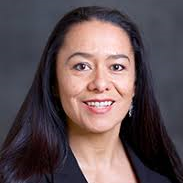The Indian Health Service is committed to improving the way we manage pain. We have made a commitment to better understand our patients, to better support our prescribers and to create an infrastructure that allows us to safely and effectively reduce pain and improve function and quality of life for our patients. The IHS opioid strategy has been deliberately aligned with the National Pain Strategy and the HHS Opioid Strategy.
The U.S. Department of Health and Human Services has recently released a guide for clinicians on the Appropriate Dose Reduction of Long-Term Opioid Analgesics . This guidance focuses on the need for individualized, coordinated, and patient-centered care plans when the decision is made between the provider and the patient to reduce the dose of long-term opioid pain medications.
As a primary care physician, I understand the need for individualized, patient-centered plans. I have seen many patients wanting relief from their pain. I find that many people believe pain medications are the best way to alleviate pain. As clinicians, our job is to work with the patient to identify the pain, understand the pain, and work together to find a way to relieve suffering and start healing.
Once we can establish a foundation of trust and respect, it is easier to hear the patient and to get to the root of the issue. For example, some patients have pain from simple injuries that were never rehabilitated adequately, some have pain that started in one place and has spread, and others had severe, life altering events that resulted in compromised movement and decreased energy.
I recall I once had a patient with chronic pain due to a debilitating disease. She was frustrated after seeing a number of specialists and finally found a regimen that she felt worked for her. However, the numerous amount of opioids prescribed to her for pain caused many side effects. I took the time to discuss her concerns and I tried to help her understand why her current regimen was dangerous for her. We discussed her treatment plans and goals and the possibility of trying alternative treatments, including tapering her use of narcotic pain medications. After several months, she demanded more pain medication and eventually started seeing a different physician. Thinking about how she was doing prompted me to learn as much as I could about how to manage chronic pain and prevent the misuse of opioids.
A year later, I saw her again and she told me she was off narcotics and doing better than ever before. She explained that she was previously in denial about her addiction. I was happy to hear that she saved all the plans we discussed and took the time to research and understand her addiction and pain. She eventually checked herself into rehab and started to eat healthier, sleep more, and exercise every day.
I remember her often and keep this in mind when I have complex, emotional discussions with patients. Pain is a very personal experience involving a multitude of factors such as childhood background, mental aptitude, social environment, and personal beliefs and values can affect perceptions of pain. As providers, we need to meet our patients where they are, not where we want them to be. Our goal is to work together to be healthier.
So for this autumn, let’s make a commitment to the preservation of life, to the cultivation of safety and to reconnect with ourselves as we go into this next winter.



